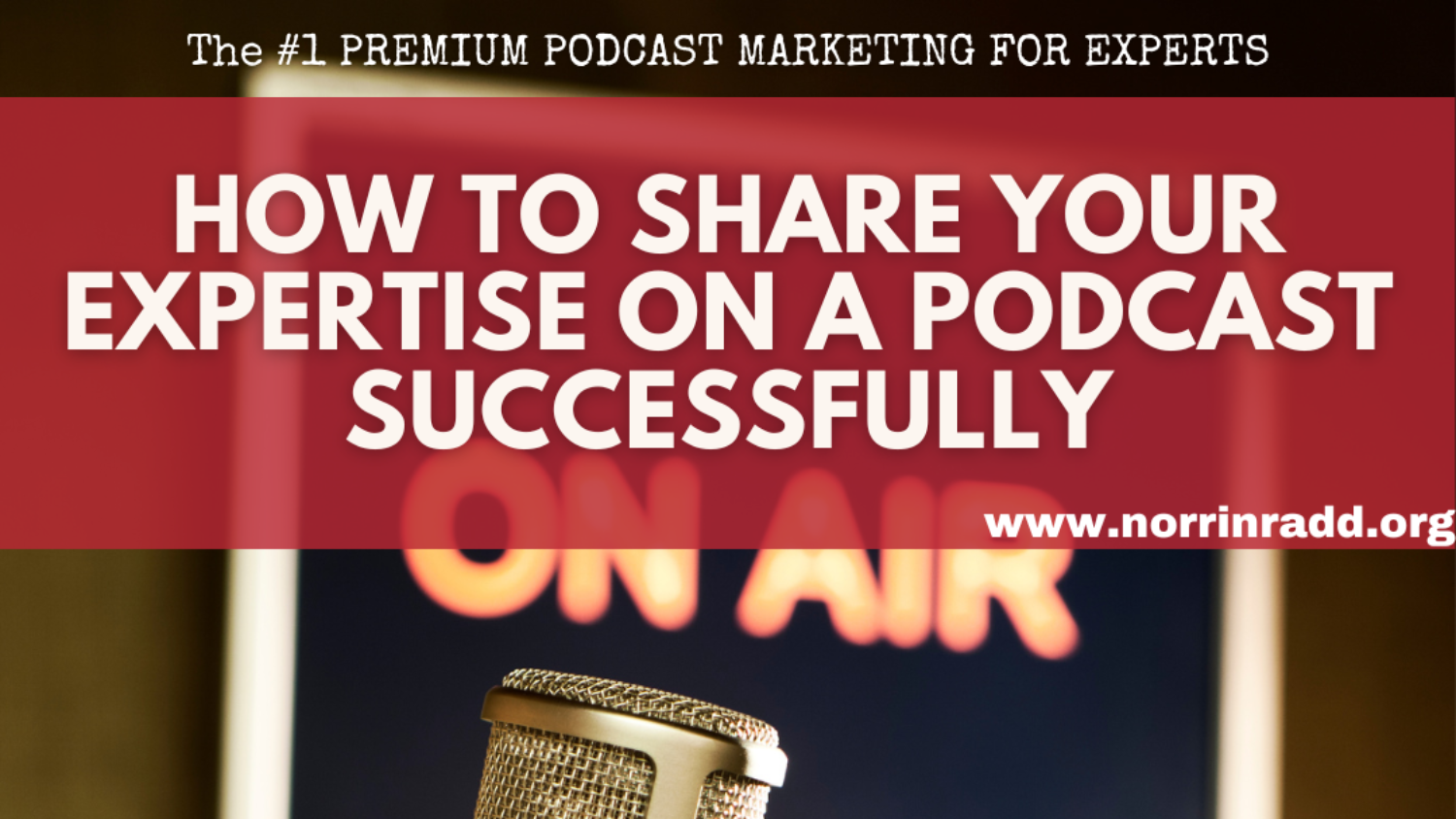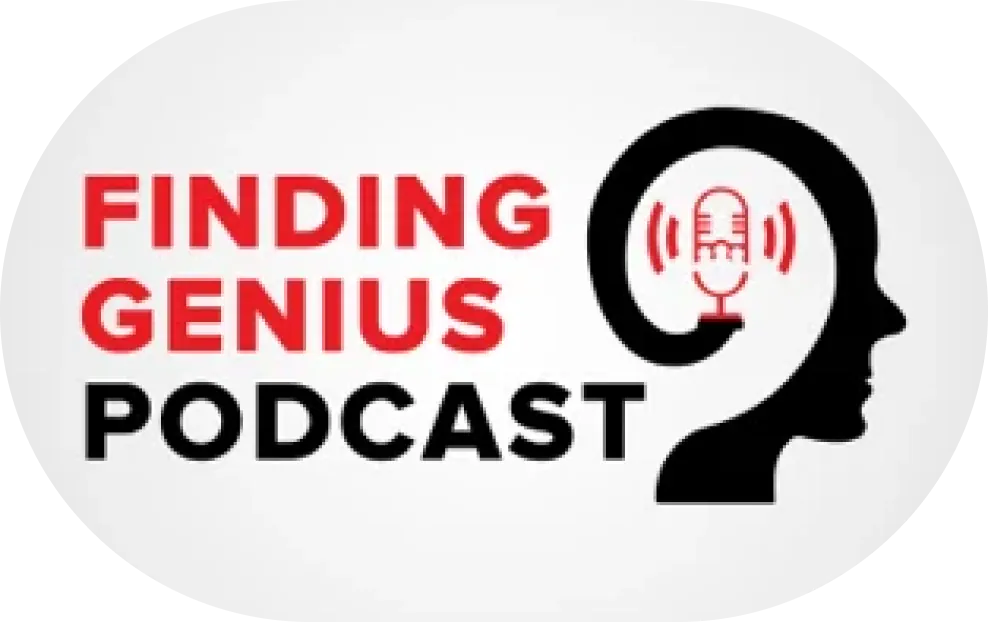How to Share Your Expertise on Podcasts Successfully
How to Share Your Expertise on Podcasts Successfully
Successful podcasts grew over time. Starting and building a successful podcast takes a lot of work.
People love podcasts to immerse themselves in new topics and learn from industry experts at their own pace.
The same characteristics that make podcasts so popular also make them a challenge to document; they’re mostly audio-only but sometimes video as well, are often long-form and require listeners to tune in at set dates to follow along.
These factors present unique challenges for podcasters who want to share their expertise with listeners.
If you have some valuable knowledge that you want others to know — and not just your friends at the local bar — a podcast may be the suitable medium for you.
If you’ve listened to any podcasts recently, you probably noticed how central they are in the lives of their fans. People tune in frequently — some as often as once a week!
Moreover, most people listen on their smartphones so that new episodes download automatically when new ones become available.
It’s no wonder why talking into a mic has become the go-to way for busy professionals looking for an efficient way to document their thoughts on something and share them with others who could benefit from it.
The Best Podcasts Have Niche Targeted Audience. So, Know Your Audience
Whether you’ve been podcasting for years or are just starting out, you should always have your audience in mind.
Who is your podcast for?
What kind of people will be listening?
As with any type of communication, knowing your audience and how they like to be spoken to is essential because it will affect everything else you do in sharing your expertise.
If you’re a podcaster without a target audience, you might as well be talking to yourself in the shower.
If you are hosting or guesting on a podcast, you can use social media to find out who your audience is and their preferences.
You can survey your followers on Facebook or Twitter or ask questions on any social media platform using hashtags that might catch the attention of the people you’re trying to reach.
Plan Out Your Topic and Questions
Before you even start thinking about what to record, you should write out the general content of your episodes.
If you’re lucky enough to own a podcast, you may already have a format where you host guests and ask them questions. If not, you may want to think about starting with a solo show where you can speak out loud about your own thoughts and discoveries.
This way, you have complete control over the content and can take as much time as you need to prepare your thoughts. Some podcasts are weekly, but most are a bit more sporadic as hosts only record new episodes when they’re ready.
Once you’ve settled on a specific topic, you should also write out some sample questions to guide your conversation.
A podcast is a conversation, so you’ll want to ask questions that lead your guest (or your thoughts) in an exciting direction.
Make sure you have a few questions prepared for the beginning and end of each episode; they’re great places to help the episode flow smoothly and give your guest a chance to share their thoughts and become an active part of the conversation.
Record With Great Audio Quality
We’ve all heard poorly recorded podcasts to know that audio quality is essential.
If your podcast sounds muffled, tinny, or staticky, potential listeners will stop listening before they’ve even heard your name. Luckily, it’s easier than ever to record with great audio.
If you’re planning to record solo, you can purchase a microphone that connects to your computer and is ready to take off as soon as you launch your podcast recording software.
If you want to record with guests, you or your guests can use a computer mic or smartphone app to record their side of the conversation. Always ask your guests to record from a quiet, noise-free space and to speak with a consistent volume; too-quiet audio is almost as bad as too-loud audio.
Develop an Expert Voice
You have the opportunity to develop an expert voice when you record your podcast. You can choose how you’d like to come across to your listeners and use your voice, tone, pace, and volume to help create a specific persona as an expert in your field.
Think about your favourite podcasts and the hosts you feel most comfortable listening to.
What makes them feel like experts to you?
If it helps, record yourself discussing a topic you feel comfortable discussing. Then, listen back and see what qualities come through in your voice that you can try to replicate in your podcast.
Make sure you’re not speaking too quickly, though. People like to hear their hosts take their time while speaking; it makes them feel like they’re receiving valuable information, not just being pitched a product.
Write Out a Script
Each podcast episode will likely cover a separate topic, and there’s no reason to try memorizing your thoughts word-for-word.
However, you may find it helpful to write out your thoughts in advance.
Suppose you’re preparing to record an episode about a topic you’ve researched. In that case, you may feel more confident if you’ve written out a script of everything you want to say.
You don’t have to read the script out loud or even look at it while recording — just being able to reference your thoughts on paper will help your mind focus on the conversation as it unfolds.
If your podcast has a co-host, you should consider writing a script with them. Even though you’re both on the same episode, it’s beneficial to everyone to have a general topic and outline of things to discuss.
That way, you can each focus on speaking your respective parts while keeping the conversation flowing smoothly.
Record Multiple Takes of Each Sentence
You might want to record multiple versions of each sentence in your script to help ensure you’re getting the best possible audio every time.
If you’re reading your writing out loud, try to record multiple takes of each sentence and then select the best one in the editing process. Record variations of each sentence if you’re not reading from your script and conversing with your guest.
You can also use multiple takes of each sentence to create sound effects or add music to your podcast if you’re not a musician. You can even have your guests record multiple takes of their sentences. This way, you have options if one take doesn’t sound as good as another.
Add in Content From Your Research
You don’t have to completely limit your research to what you write down before recording your podcast.
While recording, you can easily add relevant information from your research as it comes to mind. This will help make your podcast feel like a real conversation and not just a scripted show where you know everything in advance.
If you’re recording with a guest, you can also encourage them to add in research they did while preparing for the show or while they were waiting to be interviewed.
This will help the episode flow naturally and keep it interesting for the hosts and listeners. You can also use this great method to add jokes or funny stories if you’re recording solo.
Bumps and Transitions Between Speeches
Bumps are short pieces of audio and/or music that you can play in between different portions of your podcast to break up the content and help listeners know when one speaker’s thoughts have ended, and the next has begun.
They can be anything from stock audio that you find online to a recording of your own voice.
Bumps can also be transitioned from one speaker to another.
Suppose you’re interviewing multiple guests on a single episode. In that case, you can transition from one guest to another by having one finish speaking, then having the next guest start talking before the episode starts back up again with the next guest.
This helps each guest’s thoughts flow together more naturally.
Conclusion
Podcasting is a great way to document, share, and grow your expertise.
There are thousands of podcasts out there, so it’s essential to choose the right one for you and your audience.
Think about exactly what you want to say and how people will listen to it. Ask yourself why you’re creating your podcast and how it will help others.
Mastering the tools and techniques for podcasting is essential for anyone who wants to impact their industry. And don’t forget to build your audience over time, so they continue to tune in and learn from you! When you’re ready to share your expertise on a podcast, that’s when your hard work really comes into play.
For example, suppose you have a niche area of expertise (like business, marketing, or personal development). In that case, you may already know the tools, skills, and strategies you want to share with listeners.
If you don’t, you can find these tools, skills, and strategies online for free. You can also use online tools like Google Docs and Skype to collaborate with your guests and edit your podcast together. That way, you don’t have to worry about any coordination or sharing of notes while you’re working.














